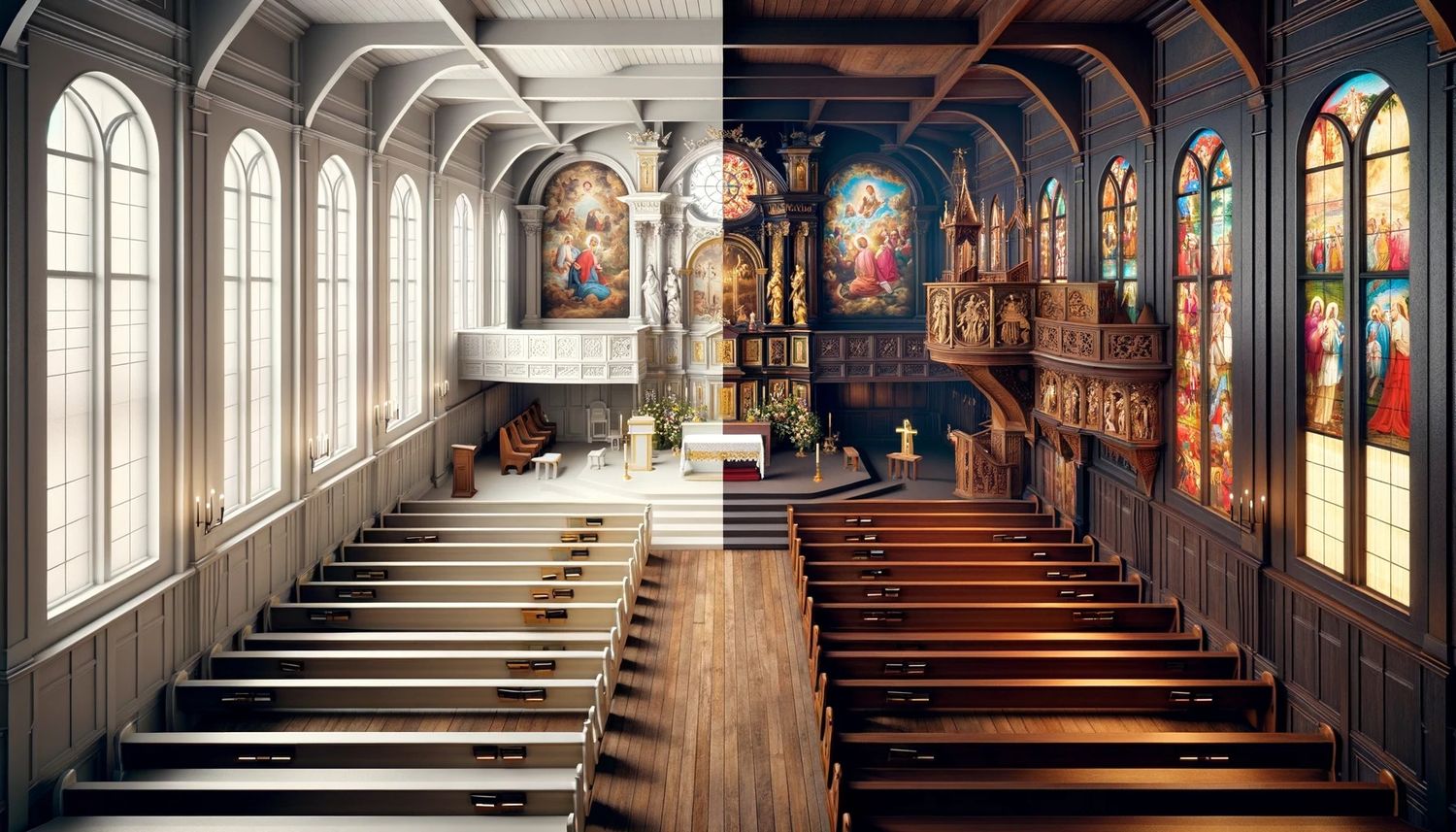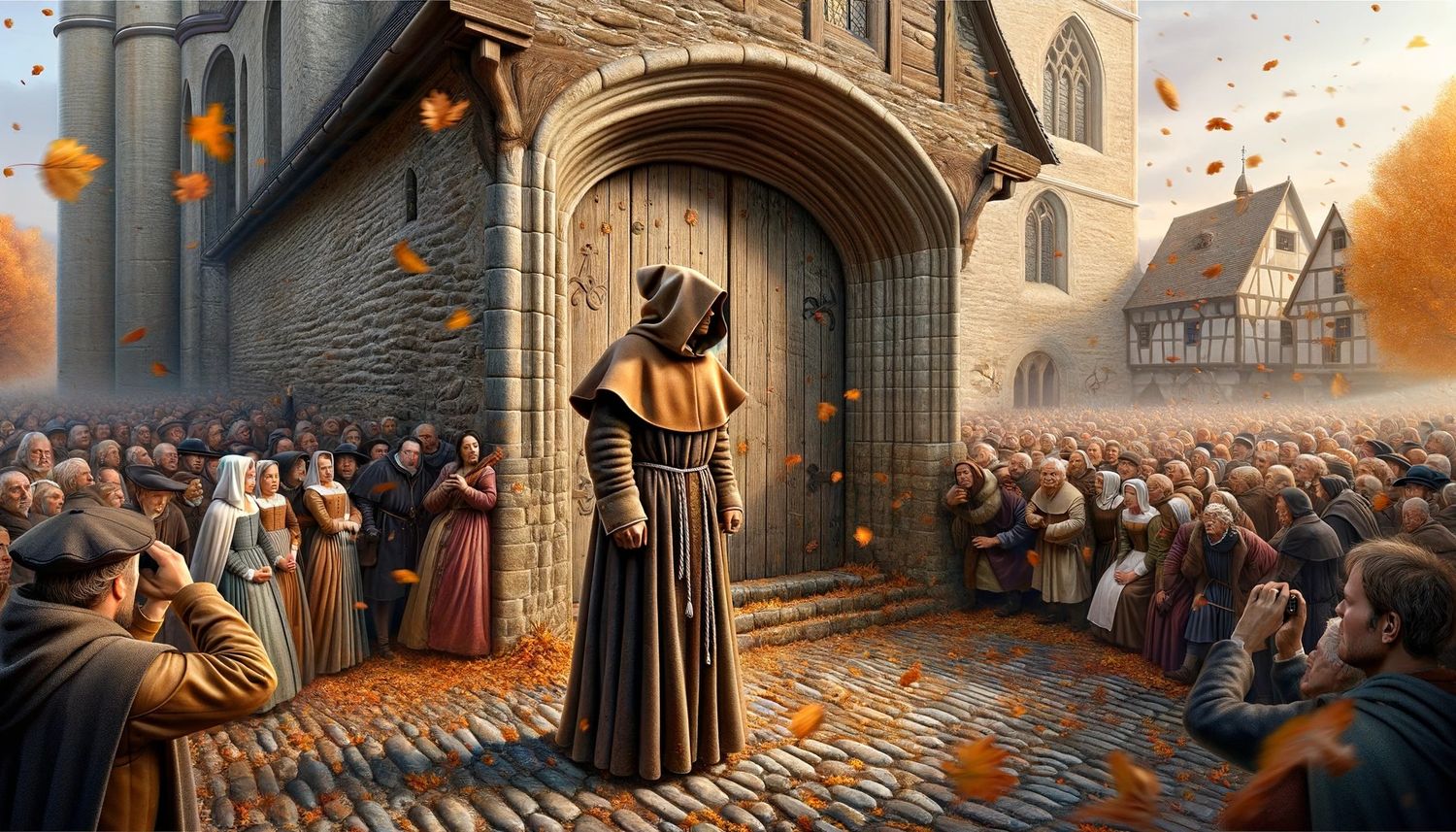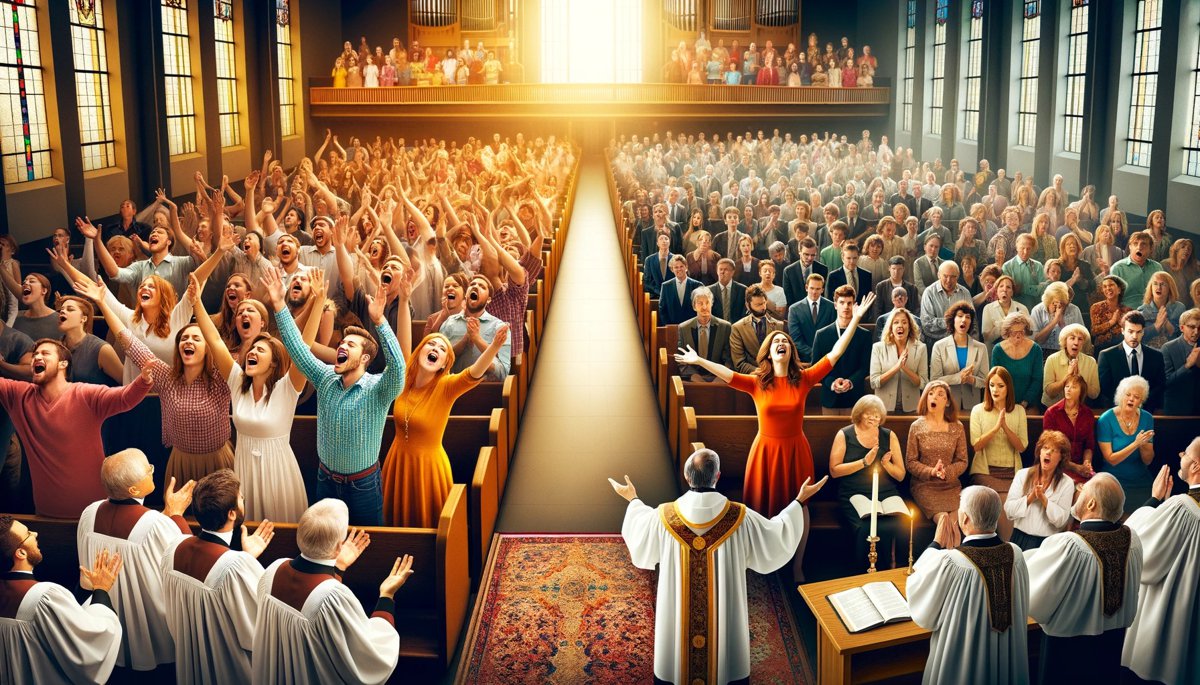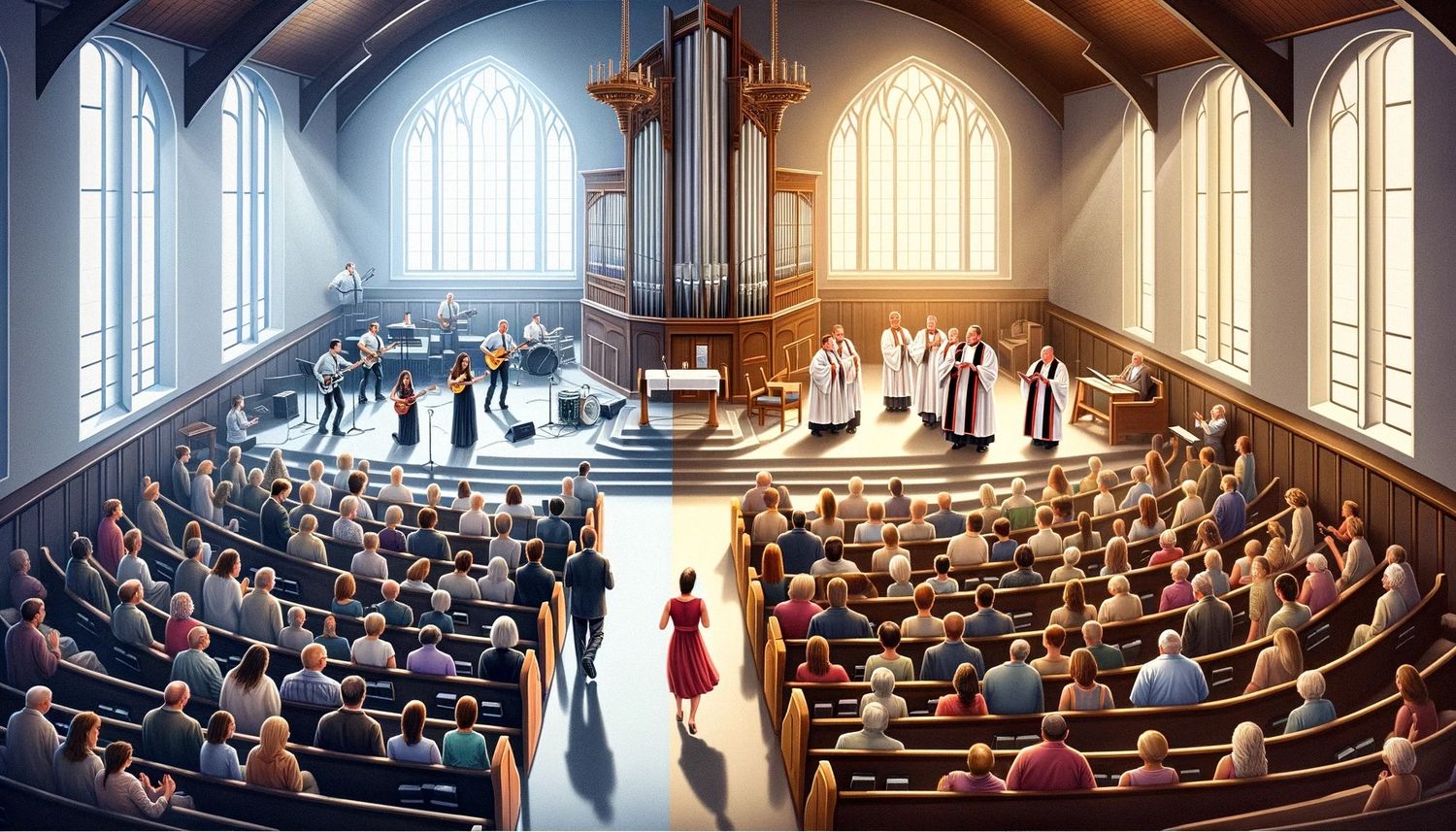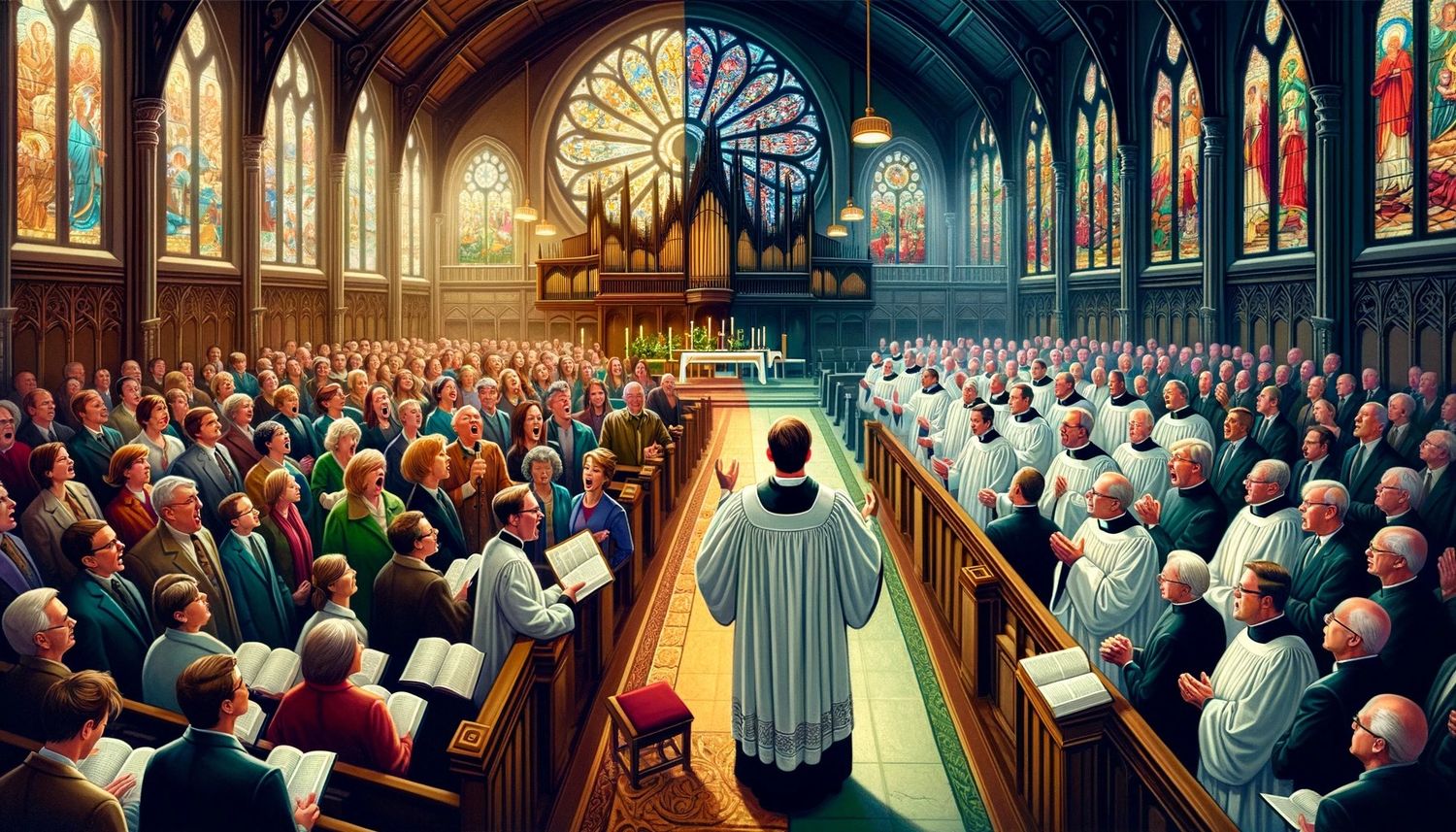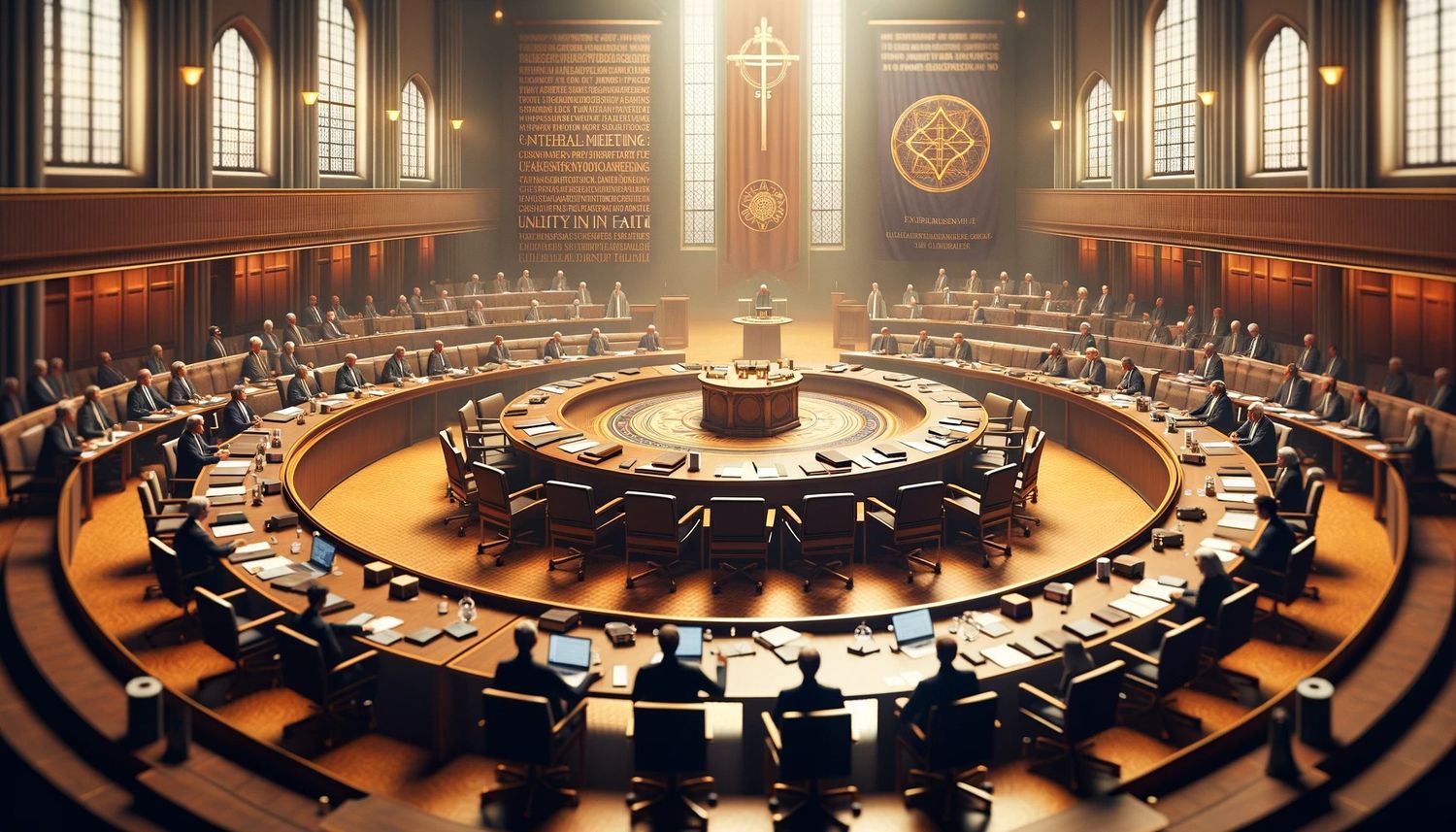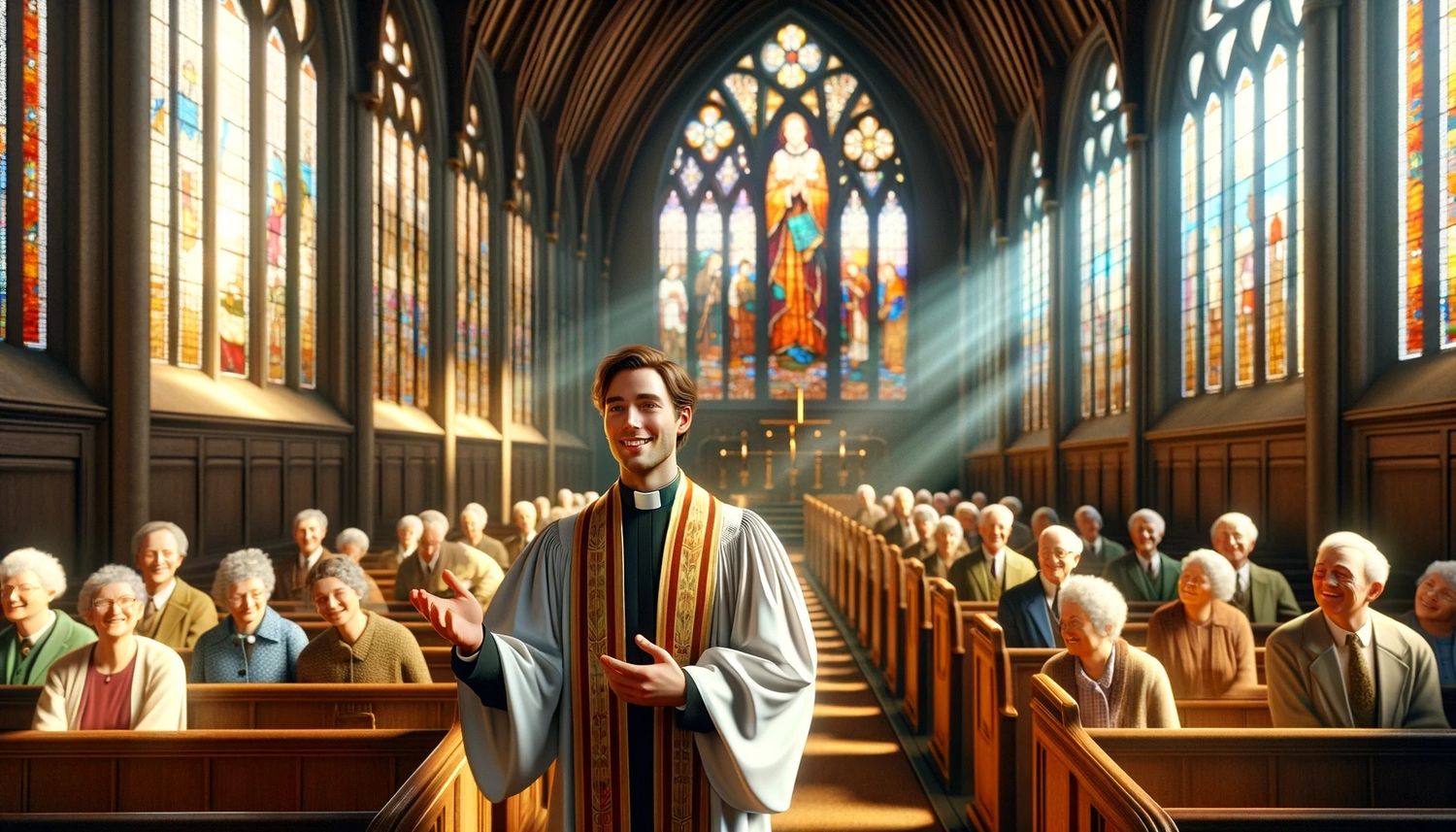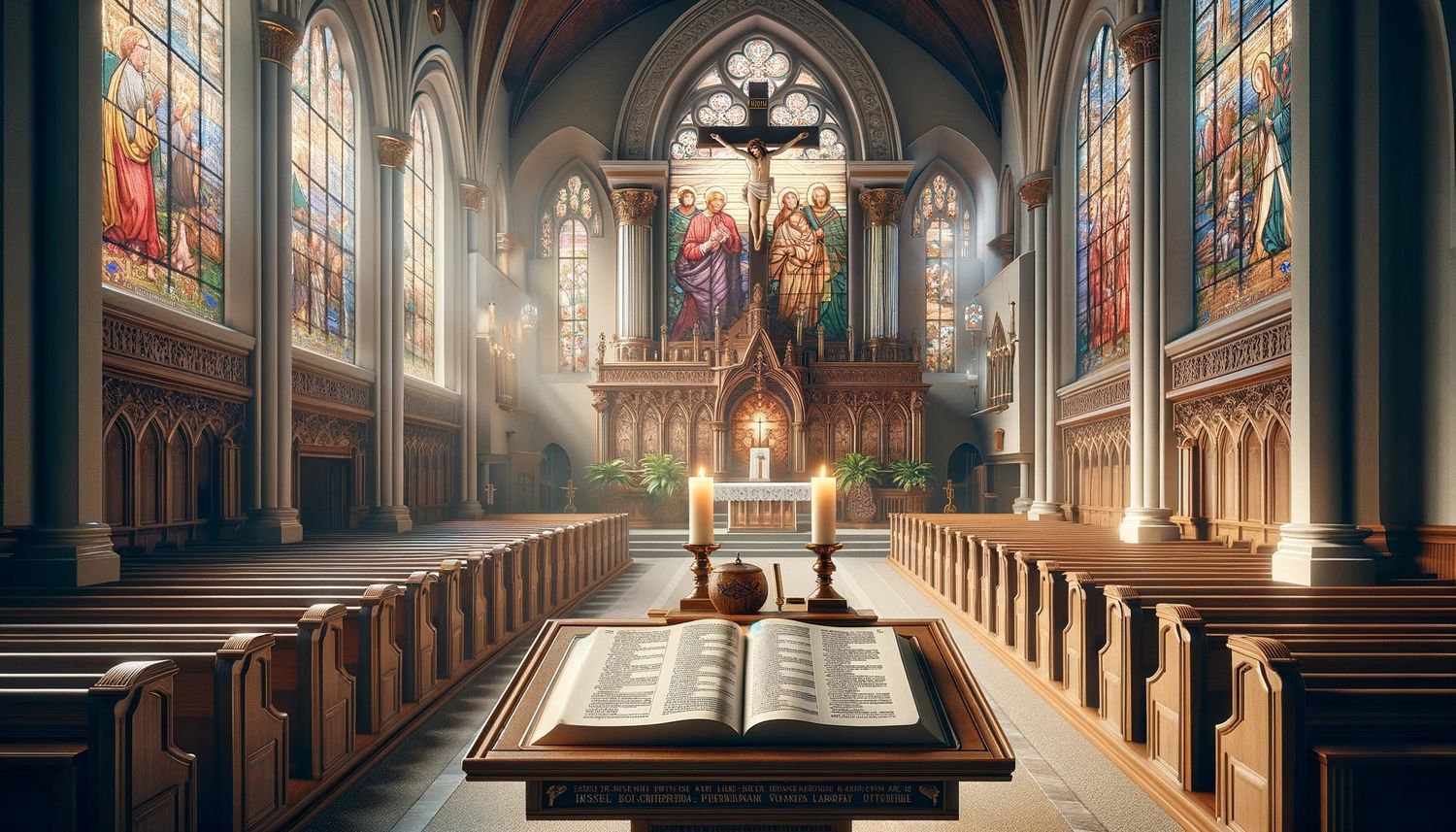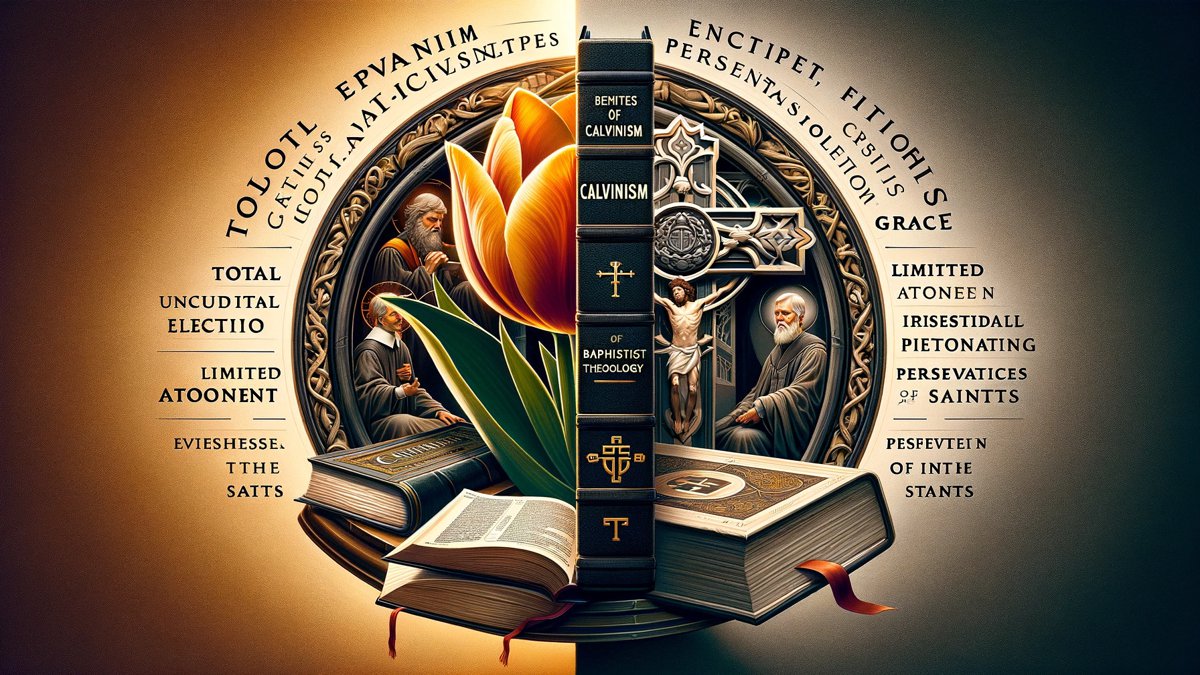Home>Theology and Spirituality>In What Ways Was John Calvin’s Church Different From The Lutheran Church


Theology and Spirituality
In What Ways Was John Calvin’s Church Different From The Lutheran Church
Published: March 3, 2024
Peter Smith, Editorial Director at Christian.net, combines deep insights into faith, politics, and culture to lead content creation that resonates widely. Awarded for his contributions to religious discourse, he previously headed a major organization for religious communicators, enhancing dialogue on faith's societal impacts.
Discover the key differences between John Calvin's church and the Lutheran church in terms of theology and spirituality. Explore the unique aspects that set them apart.
(Many of the links in this article redirect to a specific reviewed product. Your purchase of these products through affiliate links helps to generate commission for Christian.net, at no extra cost. Learn more)
Table of Contents
The Role of Predestination
-
Calvin's Emphasis on Predestination: John Calvin's teachings emphasized the concept of predestination, which stated that God had already determined who would be saved and who would be damned. This belief was central to Calvin's theology and had a significant impact on the structure and beliefs of the church he established.
-
Lutheran Perspective on Predestination: While both Calvin and Luther agreed on the doctrine of predestination, they had differing views on its role within the church. Luther's teachings focused more on the idea of justification by faith, while Calvin placed a greater emphasis on the concept of predestination and its implications for the Christian life.
-
Impact on Church Practices: Calvin's emphasis on predestination influenced the way the church operated. It led to a strong sense of discipline and moral rigor within the church, as individuals sought to live in a manner consistent with their perceived status as either the elect or the reprobate.
-
Calvin's Influence on Theology: The emphasis on predestination also shaped Calvin's understanding of the church as a community of the predestined. This influenced the way in which the church understood its mission and the role of its members in the world.
-
Differences in Interpretation: While both Calvin and Luther believed in predestination, the way in which they interpreted and applied this doctrine differed. Calvin's church placed a greater emphasis on the sovereignty of God and the absolute nature of predestination, which in turn influenced the church's teachings and practices.
-
Impact on Individual Believers: The belief in predestination had a profound impact on the individual believers within Calvin's church. It instilled a sense of assurance for the elect, while also creating a heightened sense of responsibility to live a life consistent with one's perceived status as chosen by God.
-
Legacy of Predestination: The emphasis on predestination in Calvin's church not only shaped the theological landscape of the Reformation era but also left a lasting impact on the development of Protestant theology and the way in which different denominations understand the role of divine sovereignty in the lives of believers.
The Structure of Church Governance
-
Calvin's Ecclesiastical Model: John Calvin's church differed from the Lutheran church in its structure of church governance. Calvin advocated for a system of church governance that was based on the principles of Presbyterianism. In this model, the church was governed by a body of elders, known as the presbytery, who were responsible for the spiritual oversight of the congregation. This stood in contrast to the hierarchical structure of the Lutheran church, which retained elements of episcopal polity with bishops holding significant authority.
-
Role of Elders and Deacons: Within Calvin's ecclesiastical model, the elders were tasked with the spiritual leadership and pastoral care of the congregation. They were responsible for teaching, discipline, and the overall spiritual well-being of the church. Deacons, on the other hand, were responsible for the administration of charitable works and the material needs of the congregation. This emphasis on shared leadership and the involvement of lay members in the governance of the church was a departure from the more centralized authority of the Lutheran church.
-
Congregational Involvement: Calvin's model also emphasized the active participation of the congregation in the decision-making processes of the church. Congregants had a voice in the selection of elders and deacons, as well as in matters of church discipline and doctrine. This congregational involvement stood in contrast to the more top-down approach to governance in the Lutheran church, where authority was more centralized in the hands of the clergy and church hierarchy.
-
Emphasis on Discipline and Moral Order: The Presbyterian model of church governance promoted by Calvin placed a strong emphasis on discipline and moral order within the church. The elders were tasked with maintaining the spiritual health of the congregation through teaching, admonition, and, if necessary, church discipline. This focus on discipline and moral rigor was a defining feature of Calvin's church and set it apart from the Lutheran church, which had a different approach to pastoral care and church discipline.
-
Influence on Later Protestant Churches: The Presbyterian model of church governance advocated by Calvin had a lasting impact on the development of Protestant churches beyond his immediate followers. Many Reformed and Presbyterian churches today trace their ecclesiastical structure back to Calvin's teachings, highlighting the enduring influence of his vision for church governance.
-
Theological Underpinnings: The structure of church governance in Calvin's church was not merely a matter of organizational efficiency but was deeply rooted in theological convictions. The emphasis on shared leadership, congregational involvement, and the spiritual oversight of the elders reflected Calvin's understanding of the church as a community of believers called to live in accordance with the teachings of Scripture.
-
Continued Relevance: The Presbyterian model of church governance continues to be a defining feature of many Protestant denominations, illustrating the enduring impact of Calvin's vision for the structure and governance of the church. This legacy stands as a testament to the lasting influence of Calvin's ecclesiastical model on the broader landscape of Protestantism.
The Role of Sacraments
-
Calvin's Understanding of Sacraments: In John Calvin's church, the role of sacraments held significant theological and practical implications. Calvin affirmed two sacraments, namely baptism and the Lord's Supper, as essential components of Christian worship and the life of the church. These sacraments were viewed as visible signs of God's invisible grace, serving as means of strengthening the faith of believers and nurturing their spiritual growth within the community of the church.
-
Sacraments as Signs and Seals: Calvin emphasized the dual nature of sacraments as both signs and seals of God's covenant with His people. Baptism, for instance, was seen as a sign of initiation into the Christian community and a seal of God's promise of forgiveness and new life in Christ. Similarly, the Lord's Supper functioned as a sign of the believer's participation in the body of Christ and a seal of God's ongoing sustenance and nourishment of the faithful.
-
Spiritual Efficacy: Unlike the Lutheran view of sacraments, which held that the body and blood of Christ were present "in, with, and under" the elements of bread and wine, Calvin emphasized the spiritual efficacy of the sacraments. While rejecting the notion of physical presence, Calvin affirmed the real and transformative presence of Christ in the sacraments, emphasizing their capacity to nourish, strengthen, and comfort the believer through the work of the Holy Spirit.
-
Means of Grace: Calvin viewed the sacraments as means of grace through which God communicated His saving work to His people. Baptism was understood as a means of incorporating individuals into the body of Christ and marking them as members of the covenant community, while the Lord's Supper served as a means of communion with Christ and the spiritual nourishment of believers.
-
Corporate Worship and Communal Identity: The sacraments played a central role in the corporate worship and communal identity of Calvin's church. They served as visible expressions of the church's unity and shared participation in the life of Christ, reinforcing the believers' sense of belonging to the body of Christ and their commitment to one another as members of the faith community.
-
Regulative Principle of Worship: Calvin's emphasis on the sacraments was closely tied to his broader theological framework known as the regulative principle of worship. This principle held that only those elements of worship explicitly commanded or warranted by Scripture should be practiced in the church. As a result, the administration of the sacraments was conducted with careful attention to the biblical instructions and theological significance attached to these ordinances.
-
Continued Significance: The role of sacraments in Calvin's church continues to be a defining feature of Reformed and Presbyterian traditions, shaping the worship practices and spiritual formation of believers within these denominations. The enduring legacy of Calvin's understanding of sacraments underscores their ongoing significance as vital means of grace and communal expression within the life of the church.
The View on Liturgy and Worship
-
Emphasis on Simplicity and Reverence: In John Calvin's church, the view on liturgy and worship was characterized by a commitment to simplicity and reverence. The worship services were designed to prioritize the centrality of God's Word and the solemnity of corporate worship. This emphasis on simplicity was reflected in the order of worship, which typically included elements such as prayer, the reading and preaching of Scripture, congregational singing, and the administration of the sacraments. The intention was to create a worship environment that fostered a deep sense of reverence and awe in the presence of God.
-
Regulative Principle of Worship: Central to Calvin's view on liturgy and worship was the application of the regulative principle, which stipulated that only those elements of worship explicitly commanded or warranted by Scripture should be practiced in the church. This principle guided the structure and content of worship services, ensuring that the focus remained on the scriptural foundations of worship. As a result, the liturgy in Calvin's church was marked by a deliberate adherence to biblical patterns of worship, with an emphasis on the Word of God as the guiding authority for the corporate gathering of believers.
-
Corporate Participation and Edification: Calvin's view on liturgy and worship also underscored the importance of corporate participation and edification within the worship context. The congregation was actively involved in the worship service, engaging in responsive readings, congregational singing of psalms and hymns, and the corporate observance of the sacraments. This communal participation was intended to cultivate a sense of unity and mutual edification among the members of the church, emphasizing the corporate nature of worship and the shared responsibility of believers in the cultivation of their faith.
-
Expository Preaching and Teaching: Another hallmark of Calvin's view on liturgy and worship was the emphasis on expository preaching and teaching. The worship service provided a platform for the exposition of Scripture, with the sermon occupying a central role in the edification of the congregation. Through systematic, verse-by-verse exposition of the biblical text, the preaching aimed to instruct, convict, and encourage the hearers, equipping them for faithful living and spiritual growth. This commitment to expository preaching contributed to the formative influence of the Word of God in the lives of the worshippers.
-
Balanced Blend of Tradition and Reformation: While Calvin sought to reform certain aspects of traditional liturgical practices, his view on liturgy and worship also reflected a balanced blend of continuity with the historic Christian tradition and the distinctive emphases of the Reformation. Elements such as the Lord's Supper and baptism were retained, albeit with theological reinterpretations, while the overall structure of worship retained a sense of familiarity for the congregation. This approach aimed to honor the heritage of the Christian faith while aligning worship practices with the theological convictions of the Reformation.
-
Continued Influence: The view on liturgy and worship in Calvin's church continues to exert a significant influence on Reformed and Presbyterian traditions, shaping the worship practices and spiritual formation of believers within these denominations. The enduring legacy of Calvin's approach to liturgy and worship underscores its ongoing significance as a vital expression of corporate devotion and the cultivation of faith within the life of the church.
The Influence on Political and Social Life
-
Ecclesiastical Governance and Civil Administration: In John Calvin's church, the influence on political and social life was profound. Calvin's ecclesiastical model of church governance had significant implications for civil administration. The Presbyterian structure of church governance, with its emphasis on shared leadership and the active involvement of the congregation, served as a model for the broader organization of society. This influence extended to the civil realm, as the principles of Presbyterianism informed the development of civic governance and the establishment of representative forms of government in various Reformed communities.
-
Moral Discipline and Social Order: Calvin's emphasis on moral discipline within the church had a ripple effect on the broader social fabric. The rigorous moral expectations and emphasis on personal conduct within the church community influenced the ethical standards and social behaviors of the wider society. The church's role in promoting moral discipline and social order contributed to the cultivation of a more disciplined and orderly civil society, with an emphasis on personal responsibility and communal welfare.
-
Theological Justification for Civil Authority: Calvin's teachings provided a theological justification for civil authority and the responsibilities of rulers. His emphasis on the sovereignty of God and the divine mandate for civil government shaped the understanding of political leadership and civic responsibilities. This theological framework influenced the development of political theory and the role of civil authorities in promoting the common good and upholding moral order within society.
-
Engagement in Social Welfare: Calvin's church was actively engaged in social welfare and charitable works, addressing the material needs of the less fortunate within the community. This emphasis on social welfare and the church's involvement in caring for the marginalized and vulnerable members of society set a precedent for the broader engagement of the church in social and humanitarian efforts. The church's commitment to social welfare contributed to the development of a more compassionate and supportive social environment.
-
Impact on Legal and Judicial Systems: The influence of Calvin's church extended to the legal and judicial systems of the communities where his teachings took root. The ethical principles and moral standards promoted within the church community influenced the development of legal codes and the administration of justice. The emphasis on justice, equity, and the common good within the church context contributed to the shaping of legal frameworks and the pursuit of a more just and equitable society.
-
Legacy of Civic Engagement: The influence of Calvin's church on political and social life left a lasting legacy of civic engagement and the integration of faith principles into the public sphere. The church's active involvement in addressing social issues and promoting ethical governance set a precedent for the ongoing engagement of religious communities in matters of public concern, contributing to the development of a more conscientious and socially responsible citizenry.
-
Continued Impact: The influence of Calvin's church on political and social life continues to be felt in the enduring legacy of Reformed and Presbyterian traditions. The theological and ethical principles that shaped the social and political engagement of Calvin's church have left a lasting imprint on the broader societal values and the ongoing participation of religious communities in the pursuit of justice, compassion, and the common good.
